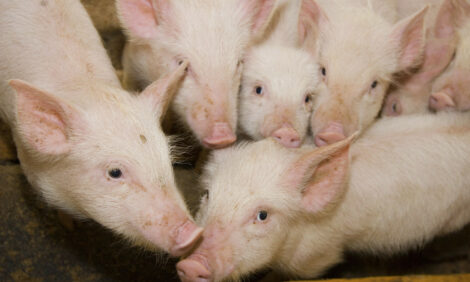



Farmers: RSPCA Logo Misleading; RSPCA Responds
AUSTRALIA - Free-range farmers are urging the consumer watchdog to investigate the RSPCA's standards for pork sold in supermarkets, warning the RSPCA logo dupes consumers into thinking that they are buying free-range products.According to The Canberra Times, Humane Choice, which accredits free-range egg, beef and pork farms, has lodged a complaint with the Australian Competition and Consumer Commission, alleging the RSPCA's labelling is misleading.
The RSPCA revised its approved farming scheme for pigs in August, removing references to the term "free-range" when it classified and labelled pig production systems.
Some farmers and animal welfare groups have warned that consumers are being misled by the labelling but the RSPCA said its scheme was designed to improve the welfare of as many farm animals as possible.
A spokeswoman for Humane Choice, Lee McCosker, said consumers would see the RSPCA logo on pork and assume it was "true free-range" even though the products could be from pigs raised in "terrible conditions". Ms McCosker said the RSPCA had a commercial arrangement with companies and received 2per cent of sales.
"This is animal welfare for sale," Ms McCosker, a free-range pig and egg producer, said.
Matt Simmons, who produces free-range pork at Ebenezer in the Hawkesbury region, said he was concerned that consumers would be paying a premium for a product that was not what they assumed it to be.
"Just because a pig is outdoors, it does not mean consumers are getting what they expect from free-range," he said.
Many of the country's largest pork suppliers, including Coles and Primo Fresh Pork, pay the RSPCA to accredit their pork, which allows them to display the RSPCA logo on products on store shelves. A spokeswoman for the RSPCA said there were no legal definitions for production systems in the pork industry, so it was up to individual brands to choose how products were labelled.
"We believe it is important that, in association with the government, the pig industry develops and agrees on appropriate production system des-scriptors that meet consumer expectations and can be legally defined."
RSPCA hits back at pork claims
RSPCA's scientific officer Melina Tensen says the organisation's pig production standards are designed to ensure a better quality of life for the animals.
"Animal welfare in pig production can be provided in an indoor environment, an outdoor environment or a combination of the two," Ms Tensen told AAP on Monday.
"The aim is to provide for the animals' behavioural needs and allow the pig to do all those things a pig needs to do: forage, root, play and socialise."
Ms Tensen said in conventional pig farming systems female pigs were kept in sow stalls for part of their pregnancy then moved to farrowing crates to give birth.
According to The West Australian, once their piglets were weaned they were transferred to concrete pens to grow until ready for slaughter.
"At RSPCA-approved farms, there are no sow stalls, farrowing crates or barren concrete pens," Ms Tensen said.
Greens NSW MP John Kaye said on Monday the RSPCA's accreditation and labelling standards were misleading because people who bought pork with an RSPCA stamp would assume it was from a free-range pig.
A complaint has also been lodged with the Australian Competition and Consumer Commission by free-range accrediting organisation Humane Choice, alleging the RSPCA's labelling is misleading, Fairfax reported.
The RSPCA changed its approved pig farming scheme in August last year and removed references to the term "free-range" when classifying and labelling pig production systems.
Ms Tensen urged the pig industry and government to develop a legal definition for terms such as free range so it was clear what minimum requirements must be met.
"There are many different pork producers, all producing pigs in slightly different ways," Ms Tensen said.
The RSPCA denied any commercial arrangement with pig companies. It said the royalties it received were used to pay the costs of assessing pig farms.








